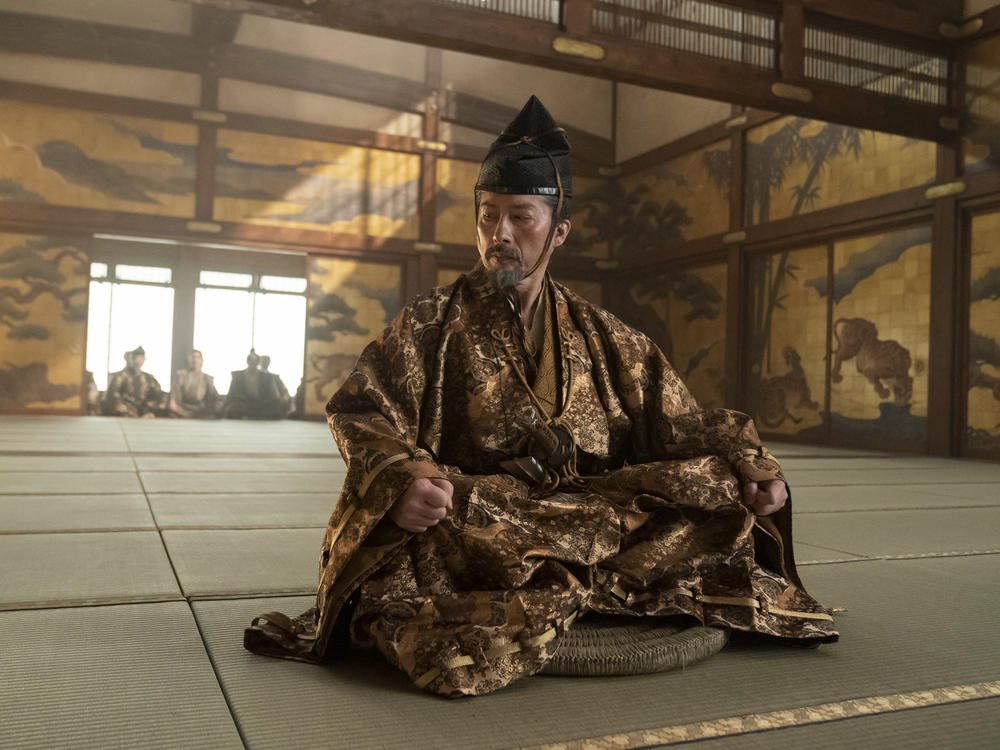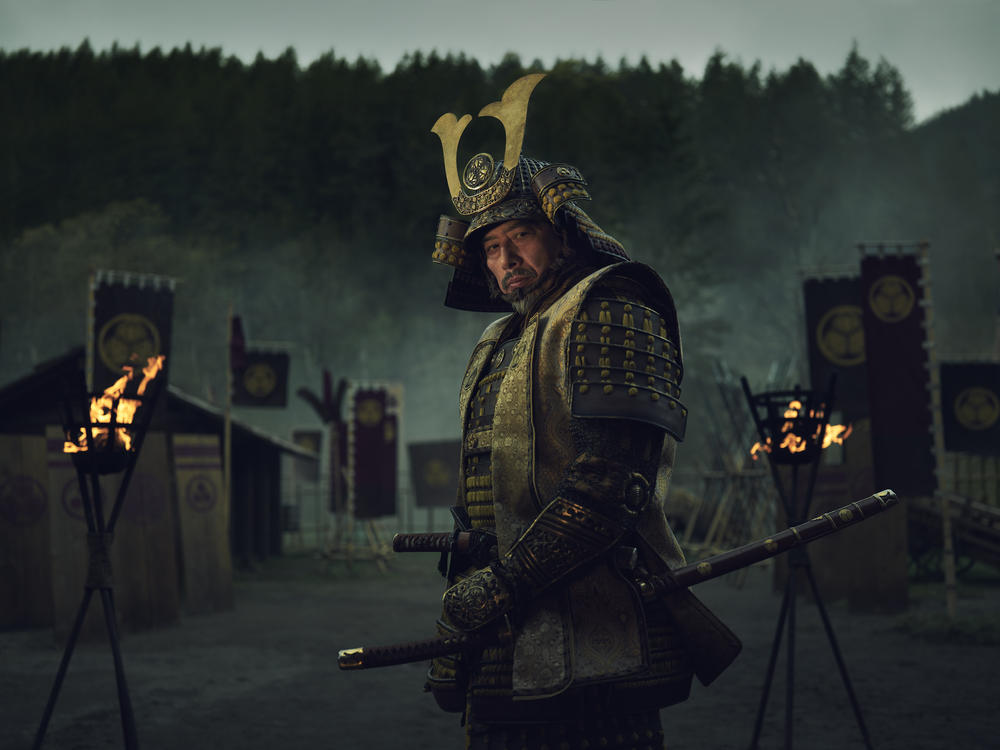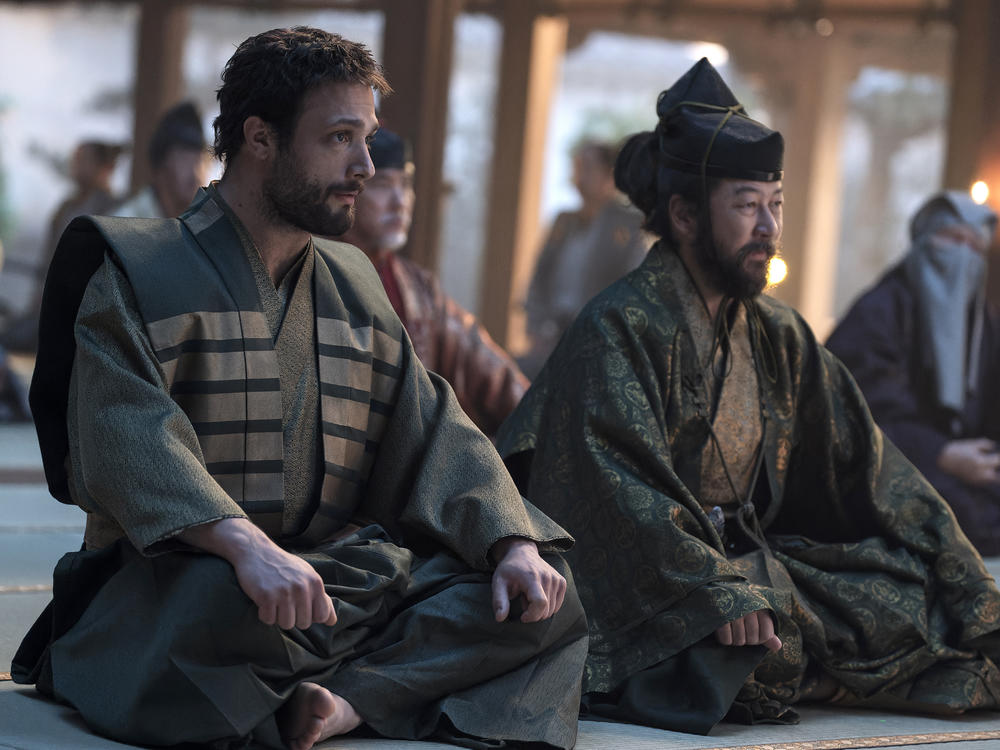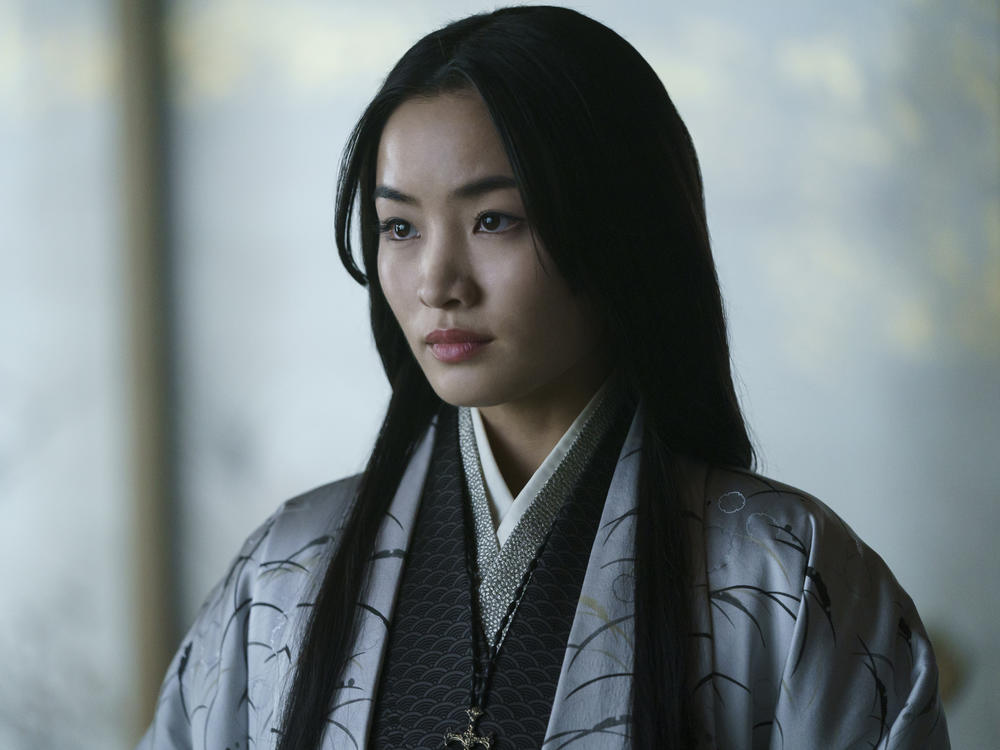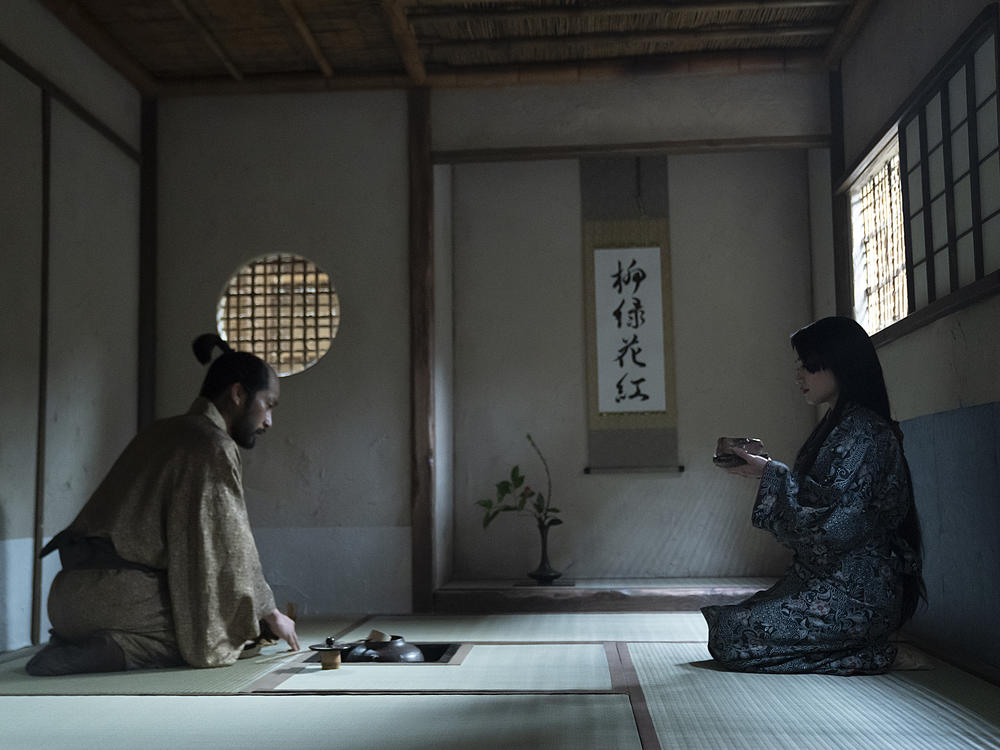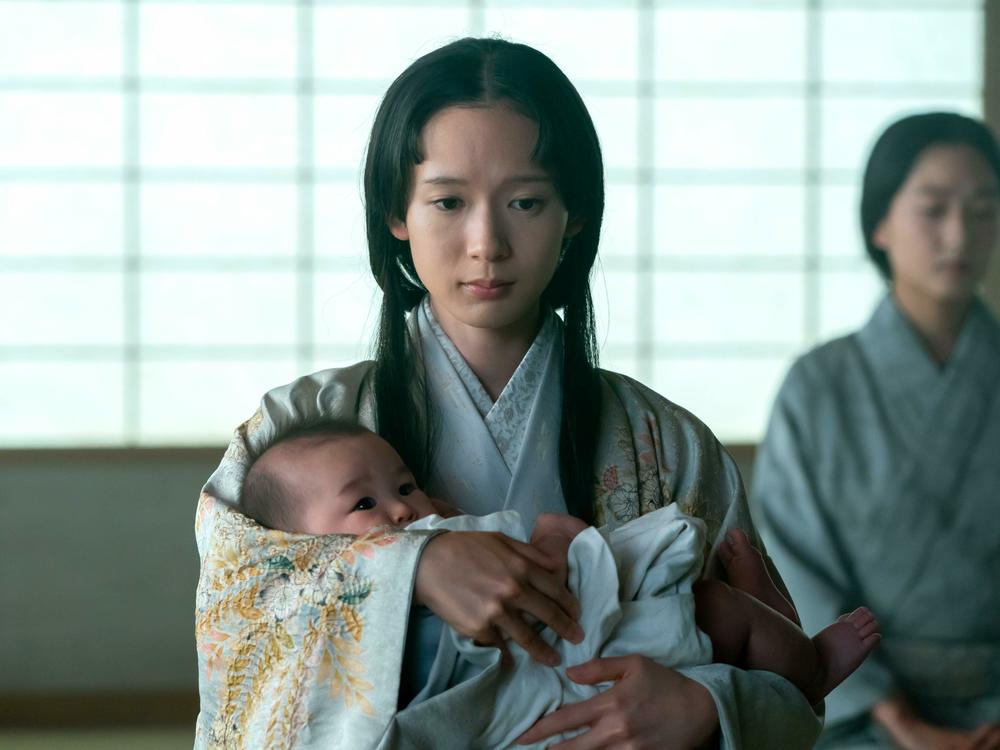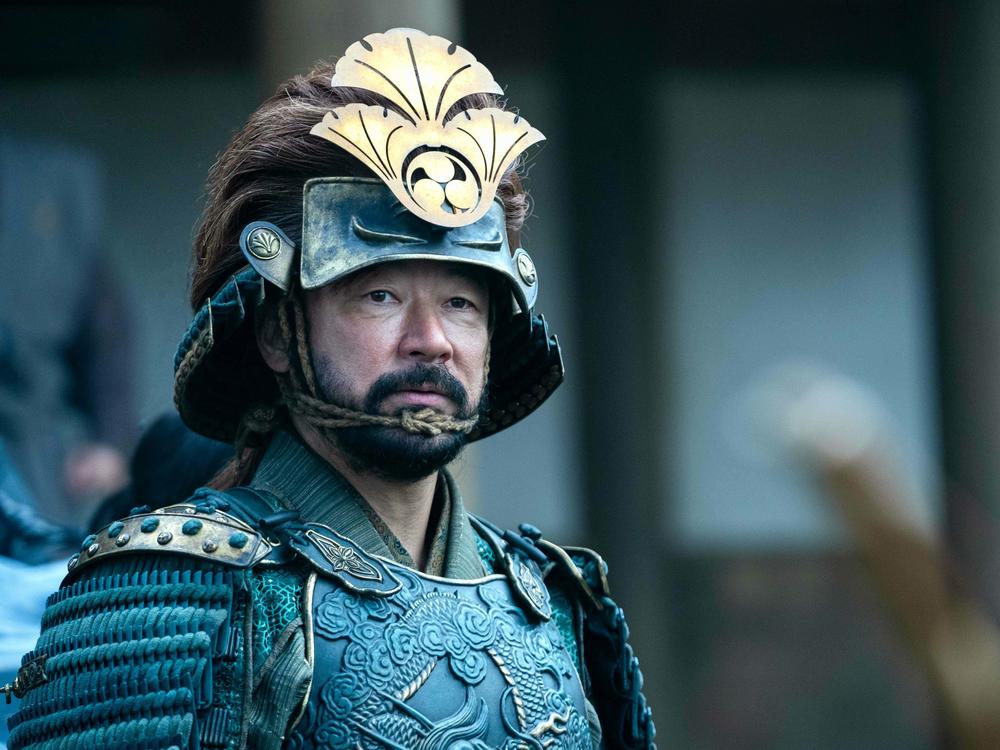Section Branding
Header Content
'Shōgun' banked on authenticity. It became one 2024's most successful shows
Primary Content
The first time James Clavell's best-selling 1975 novel Shōgun was adapted for television, the audience understood about as little as shipwrecked English navigator John Blackthorne, played by Richard Chamberlain, about 17th century Japan and the samurai warriors who hold him captive there.
More than four decades later, the FX miniseries remake that wrapped this week took a decidedly different turn by banking on authenticity — an effort that seems to have paid off. Its three-episode premiere set a new streaming record of 9 million views on Hulu and Disney+, according to the Walt Disney Company.
All Japanese characters are played by Japanese actors speaking period Japanese (with subtitles) while dressed in painstakingly detailed costumes and sets. Numerous Japanese expert consultants and crew members also worked on the show.
That effort, an unprecedented one for a U.S. production, was largely headed by Hiroyuki Sanada. He's both a producer of the series and the lead actor. He plays a fearsome and cunning Yoshii Toranaga, who's a busho, or warlord.
"In the '80s, one was looking at feudal Japan only through the blue eyes. But this time in the script, we put more Japanese lenses... and then showed more detail about our culture deeply," Sanada told Morning Edition host A Martínez.
Sanada helped hire crew with samurai movie and television experience, including for wigs, costumes, sets and even specific gestures and movement. This meticulous attention to detail embarks the viewer on a thrilling journey whose visual and cultural riches could make Shōgun a serious Emmy contender.
"Authenticity was our lifeline for this show," Sanada said. "In Japan, this period is so popular, the most famous period, and then [there are] great characters there. So I wanted to introduce this to the world, hopefully correctly."
While there were initial plans to shoot the series in both Canada and Japan, the COVID-19 pandemic scuttled all that, so it was shot instead in Vancouver, British Columbia over the course of 11 months.
"Luckily, Vancouver had everything good for the samurai period drama," Sanada said, noting there were areas without modern buildings or electrical poles. "In Japan, it's hard to find those [kinds of] locations now, there are modern things everywhere."
His dual-hatted role sometimes saw Sanada, a veteran of samurai features, supervise other actors and crew while dressed in full combat armor. It's not as terrifying as it sounds, Sanada insisted.
"No stress. It was fun," he said. "When watching [the] monitor and then some young actors [did a] great job, and everyone — producers, director — said, 'Yes, this is it,' at that moment I felt so happy. I feel like a parent... So I was happy more than [if] somebody applause my performance."
His character is based on the real-life historical figure of Tokugawa Ieyasu, the founding shōgun of the Tokugawa Shogunate, which ruled from 1603 until the Meiji Restoration in 1868. That era is also known as the Edo period, one characterized by economic growth, isolationism and peace. It was named after its capital, Edo, which was later renamed Tokyo.
But none of that is clear as Shōgun begins. Set in 1600, it's still a time of turmoil and civil war, as feuding warlords fight over power. Toranaga's enemies in Osaka outnumber him and he's isolated. He slowly flips the situation in his favor thanks in part to a shipwrecked — and brash — British sailor, John Blackthorne, played by Cosmo Jarvis.
In one of their first exchanges, with translating help from Christian convert Lady Mariko (Anna Sawai), Blackthorne details his plans to war against the Portuguese Catholics who have already sought to carve out Japan for themselves and their Spanish allies. He tries to enlist Toranaga.
"I think you should abandon this war. You are outnumbered. There is no hope for you," Toranaga tells Blackthorne, who responds: "Unless I win."
Ultimately, Blackthorne unwittingly becomes a sort of pawn in an intricate game of chess, or go. While Blackthorne (and other European characters) initially considers the Japanese samurai and villagers around him to be "savages" — a title they also reserve for him — he gradually comes to appreciate Japanese culture and language.
"Cosmo and I, Blackthorne and Toranaga, little by little they're getting closer and closer. But it was so natural, very organic on set," Sanada said, adding that Jarvis was a "great learner" of Japanese.
Toranaga thanks Blackthorne by naming him a hatamoto, a prestigious title that granted him direct access to the warlord. The real-life Tokugawa had also named William Adams — the English pilot major who's the inspiration behind the character of Blackthorne — hatamoto.
Sanada said that what drew him most to the character of Toranaga were the secretive warlord's character that makes him "very strategist, mysterious, powerful but also a family man."
And the saga just could go on.
Show creators Justin Marks and Rachel Kondo didn't dismiss the possibility of a second season in an interview with The Hollywood Reporter out this week, though they were unsure how to follow the story following the show's conclusion.
All 10 episodes are streaming now on Hulu and Disney+.
The broadcast version of this story was produced by Mansee Khurana. The digital version was edited by Obed Manuel.
